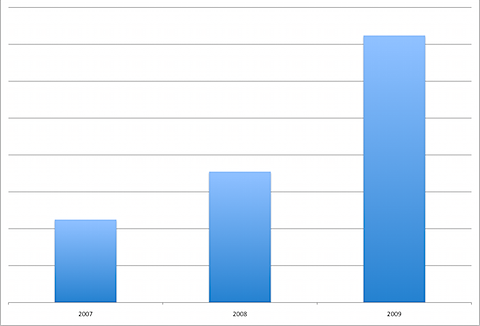 That’s what TOC is saying here. And the 2008 sales were, themselves, up 50% over 2007.
That’s what TOC is saying here. And the 2008 sales were, themselves, up 50% over 2007.
This is even more significant since O’Reilly has dropped DRM on its ebooks. These are textbooks, technical books and manuals, and so you would think that the intended audience would have the expertise to pirate them since DRM isn’t used. As to the future of publishers, they have this to say:
It’s becoming clear that as in the print world, there are a handful of very large channels (four or so for us) and then a lot of smaller ones that together add up to quite a bit. Pushing a large quantity of content into all of these channels effectively isn’t easy, and suggests the role publishers have long played of aggregating authors for retailers and retailers for authors will only grow in importance — though whether existing publishes continue to play that role remains to be seen.
Technorati Tags:
e-book, e-books, ebook, ebooks, Paul Biba, O’Reilly, Tools of Change


































I was planning to mention this myself, but you beat me to it.
One thing that really should be pointed out is that, as many BoingBoing commenters note, correlation does not equal causation. Given how much e-book popularity in general has increased over the last year, it is uncertain how much, if any, credit can be given to the removal of DRM for that growth.
I hate DRM too, but jumping to conclusions isn’t helpful.
Agree with Chris’ view, and I would also like to point out that just because O’Reilly is doing well does not mean that the role of publishers will only become more important. O’Reilly could be the exception. They’ve long been savvy, and their audience is very specific. OTOH, many other publishers, especially the largest, are slow to move into the 21st century and seem to have no original ideas. Which is too bad, since they control so much of the industry.